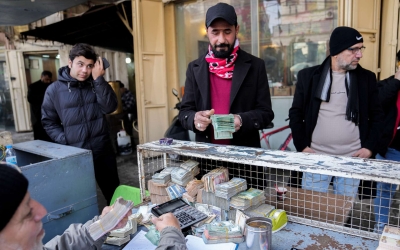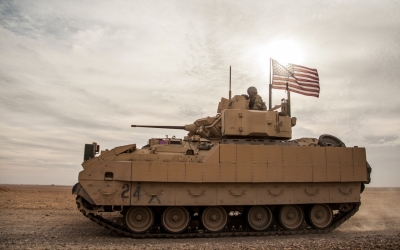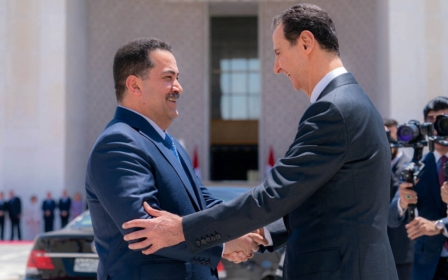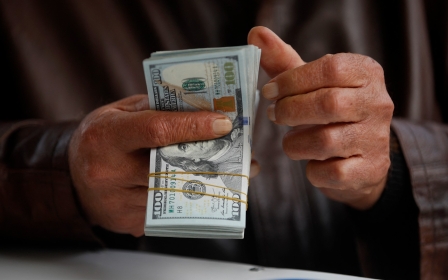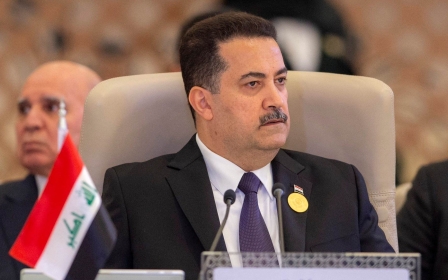US bans 14 Iraqi banks in dollar smuggling crackdown: Report
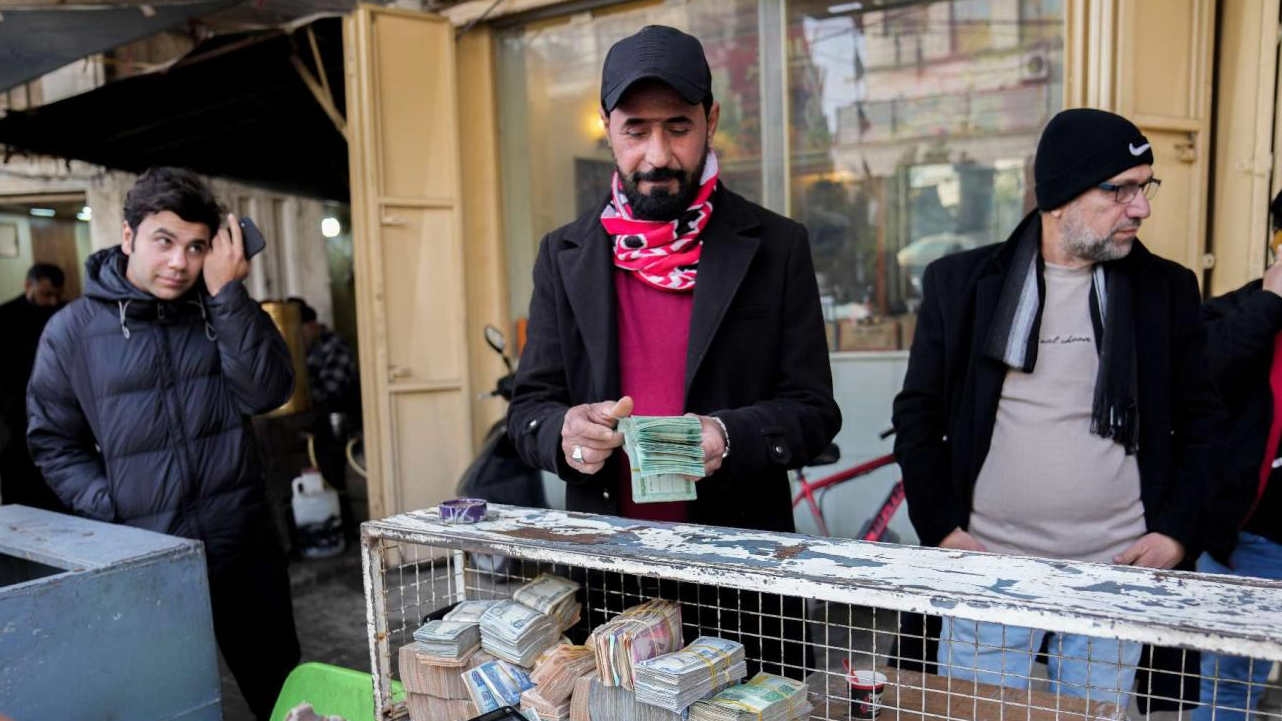
The US has blacklisted 14 Iraqi banks from conducting dollar transactions as part of its crackdown on corruption and dollar smuggling to Iran.
The ban was imposed Wednesday by the US Treasury Department and the Federal Reserve Bank of New York, according to a Wall Street Journal report on Wednesday.
The report, citing unnamed Iraqi and US officials, said the move came after Washington discovered that the banks had engaged in money laundering and fraudulent transactions, potentially with sanctioned entities that could benefit Iran.
The ban is part of a wider crackdown by Washington on fraudulent US dollar transactions in Iraq. In November, the US Treasury and the Central Bank of Iraq enacted tighter restrictions on wire transfers.
The US Federal Reserve also began imposing more stringent checks on the source of foreign money being used to buy dollars at Iraq’s daily currency auction.
New MEE newsletter: Jerusalem Dispatch
Sign up to get the latest insights and analysis on Israel-Palestine, alongside Turkey Unpacked and other MEE newsletters
The US dollar is a de facto second currency in Iraq. The government keeps its foreign reserves at the Federal Reserve Bank of New York.
In order to extract the funds and turn them into dinars, the Central Bank of Iraq requests dollars from the Fed, which it then sells to private banks and other financial institutions, such as currency exchanges, through a daily dollar auction.
US officials believe that heavily sanctioned Iran has been manipulating the auction to obtain hard currency and that Iraqi banks and currency-exchange houses had gamed the auction, buying dollars at a fixed rate and selling them on the street at a much higher price.
Last year, about $200m per day on average was being sold through the auction to private banks and companies.
But that figure dropped sharply in the final two months of the year as the US stepped up its scrutiny, falling to a daily average of $56m by late December, according to data reviewed by MEE.
Iraqi currency crunch
The beefed-up restrictions triggered a collapse in the dinar and surging prices for imported goods, with the Iraqi government struggling to meet its obligations, including the salaries of millions of public employees, pensions, and social support.
The currency crisis sparked protests across the country and the governor of the central bank resigned "because of his inability to face the crisis", an advisor to Prime Minister Mohammed Shia al-Sudani previously told Middle East Eye.
But US officials believed their oversight worked, reducing the illicit trade in dollars to countries like Syria and Iran, and helped them sniff out the 14 blacklisted banks.
Several of the banks had already stopped conducting transactions because they were unable to meet the new requirements, officials said. Others turned to using cash cards credited with Iraqi dinars, then transporting them to nearby countries in an attempt to withdraw the funds in dollars, the officials said.
Iran tensions
MEE reported that late last year, the Coordination Framework, the umbrella group that makes up the largest political coalition backing the Iraqi government, held a meeting in Baghdad to discuss the rising cost of dollars.
The governor of Iraq’s central bank told senior officials the US had “serious indications” of dollar-smuggling operations to neighbouring countries and named two Egyptian banks based in Dubai, where most of the dollars bought in the auction had been transferred in the period being investigated. The dollars had then been transferred on to Oman and then to Iran.
According to a document seen by MEE, the central bank ordered banks and other financial institutions to stop dealing in dollars, with the banks being watched by the US, on 6 November. It was not clear whether those were the same banks US officials blacklisted on Wednesday.
On Tuesday, Washington gave Iraq a waiver to pay Iran for electricity via non-Iraqi banks. Tehran had pushed for the move by cutting its natural gas exports to Iraq, forcing Baghdad to impose unpopular electricity cuts in the summer heat.
Tehran and Washington had been trying to ease tensions. MEE first reported that the two were nearing a temporary deal to swap some sanctions relief for reducing Iranian uranium enrichment activities.
Efforts to reach an interim nuclear deal faced a setback, however, with factions in the Iranian ruling establishment disagreeing over US demands on prisoner releases.
Washington’s negotiating position was also thrust into fresh chaos after its top Iran envoy, Robert Malley, was placed on unpaid leave amid reports that he was under investigation for mishandling classified information.
Middle East Eye delivers independent and unrivalled coverage and analysis of the Middle East, North Africa and beyond. To learn more about republishing this content and the associated fees, please fill out this form. More about MEE can be found here.


